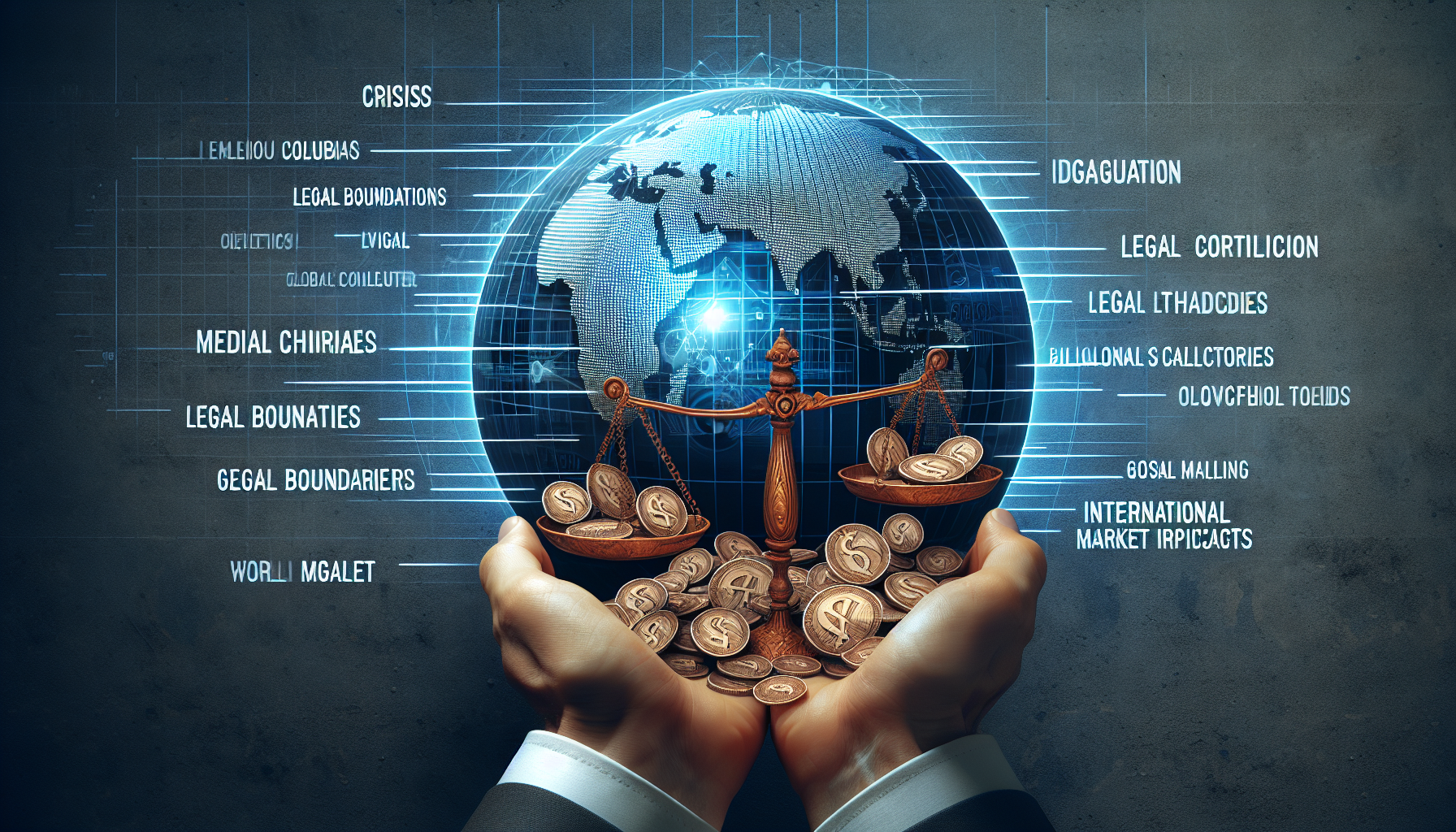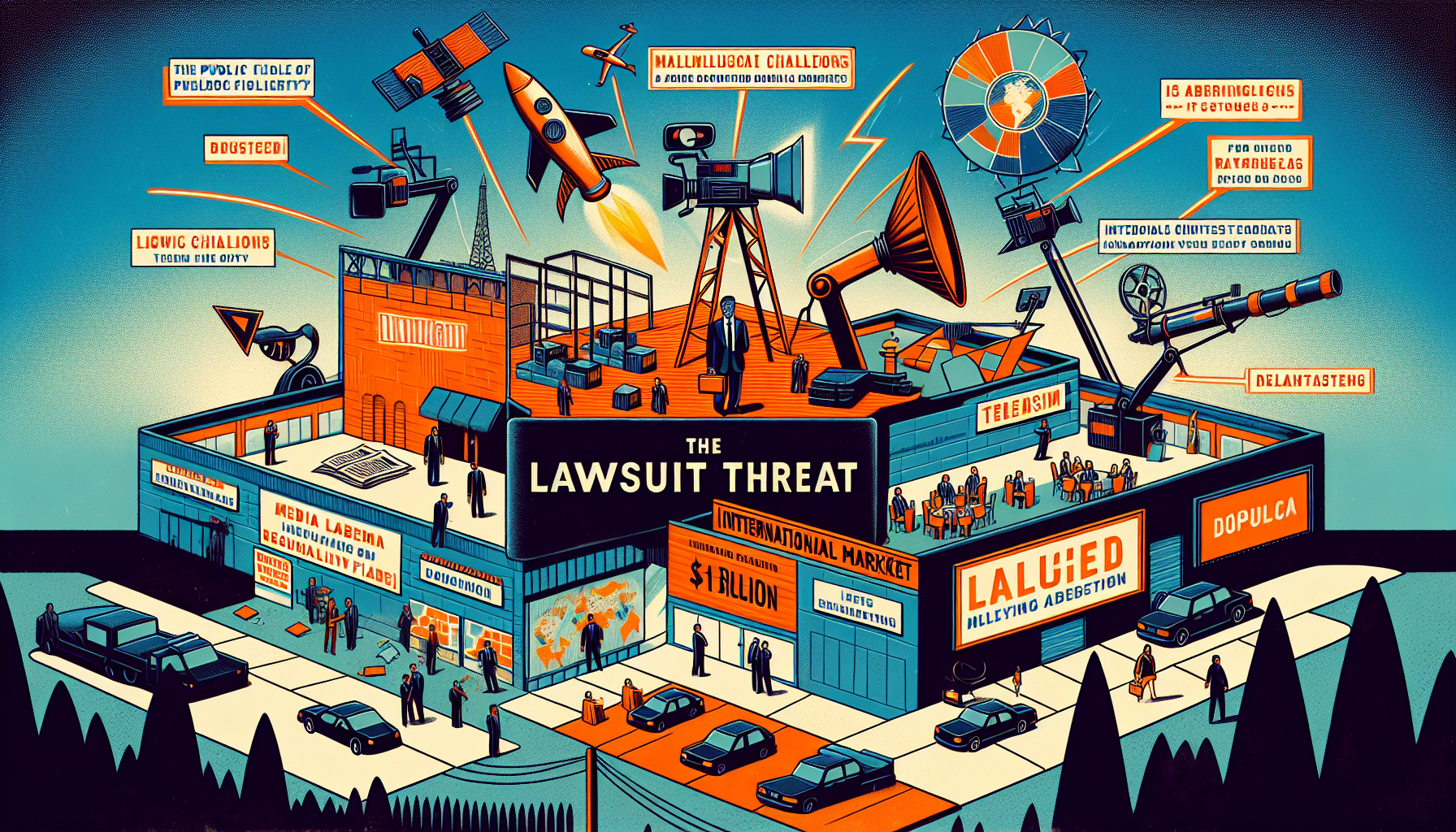The $1 Billion Broadcast: A Legal, Political, and Media Firestorm Ignites
The worlds of international media, politics, and high-stakes litigation collided explosively this week as former U.S. President Donald Trump threatened the British Broadcasting Corporation (BBC) with a defamation lawsuit seeking a staggering $1 billion in damages. This unprecedented legal threat, centering on the contentious editing of a historical speech, has triggered a crisis within one of the world's most respected public broadcasters, forcing high-level resignations and raising profound questions about media integrity, political bias, and the global repercussions of editorial mistakes. The event marks a significant escalation in the ongoing battle between powerful political figures and established news institutions.
A Documentary's Deceptive Edit: Unpacking the Core Controversy
The fuse for this legal bomb was lit by a single program: the BBC's Panorama documentary titled "Trump: A Second Chance?" which aired in October 2024. The focal point of the controversy is the program's portrayal of Trump's speech on January 6, 2021. In the documentary, viewers were shown a clip where Trump appeared to say in one continuous statement: "We're going to walk down to the Capitol ... and I'll be there with you. And we fight. We fight like hell." This presentation strongly implied a direct and immediate incitement to violence aimed at the U.S. Capitol building.
However, the reality of the original speech tells a different story. The two phrases were extracted from sections of the address that were approximately 54 minutes apart. The full context reveals Trump initially stating, "We're going to walk down to the Capitol, and we're going to cheer on our brave senators and congressmen and women," a sentiment far removed from the violent insinuation created by the spliced edit. By combining these disparate segments without clarification for the audience, the documentary constructed a misleading narrative that has now become the centerpiece of a billion-dollar legal claim.

Inside the BBC's Crisis: Resignations and Repercussions
The revelation of this editorial misstep, reportedly brought to light by a leaked internal memo, sent shockwaves through the BBC's leadership. The corporation was thrown into immediate crisis management mode. The fallout was swift and severe, demonstrating the gravity with which the breach of trust was viewed internally. In a dramatic turn of events, both the Director-General, Tim Davie, and the Head of News, Deborah Turness, tendered their resignations. Such high-level departures are rare and signal a profound institutional acknowledgment of failure.
BBC Chair Samir Shah addressed the scandal directly, confirming the corporation was assessing the "very serious allegations" and issuing a public apology for what was termed an "error of judgment." This internal turmoil highlights the immense pressure on public service broadcasters to maintain absolute impartiality and factual accuracy, especially when covering globally polarizing figures and events.
Third-Party Production: Who Bears Ultimate Responsibility?
Complicating the narrative is the fact that the Panorama documentary was not produced in-house by the BBC's own journalists. It was instead created by an independent production company, October Films. This detail raises critical questions about the BBC's internal review and compliance processes. While the physical editing may have been done by a third party, the responsibility for vetting, approving, and ultimately broadcasting the content rests squarely with the BBC, the commissioning broadcaster. The scandal has ignited a debate about the chain of accountability in modern media production and the safeguards needed when outsourcing investigative journalism.
The Legal Battlefield: Trump's $1 Billion Defamation Claim
In response to the broadcast, Trump's legal team dispatched a sharply worded letter to the BBC, laying the groundwork for the potential lawsuit. The letter, signed by attorney Alejandro Brito, demanded a full retraction, a public apology, and substantial financial compensation. It accused the BBC of airing "false, defamatory, disparaging, and inflammatory statements" that caused the former president "overwhelming financial and reputational harm." The ultimatum was clear: comply with these demands by a specific deadline or face a $1 billion defamation lawsuit.

Trump himself echoed this aggressive stance in a televised interview, stating he felt an "obligation" to sue to prevent media organizations from manipulating his words. This is not an isolated legal strategy; it fits a pattern of Trump leveraging litigation against major media outlets like CNN, The New York Times, and others, though with mixed results. The sheer scale of the claimed damages, however, sets this potential case apart.
Navigating the Legal Labyrinth: Jurisdiction and Defamation Law
While the threat is monumental, the path to a successful lawsuit is fraught with legal hurdles. The BBC, in its official apology, stated that while it "sincerely regrets" the error, it "strongly disagrees there is a basis for a defamation claim." A key challenge for Trump's legal team would be establishing jurisdiction. For a case to be heard in a U.S. court, such as Florida where Trump might file, it must be proven that the defamatory content was published to a significant audience within that state. There is currently no public evidence that the Panorama documentary was broadcast on American television, potentially weakening the jurisdictional standing.
Furthermore, defamation law requires the plaintiff to prove that false statements were made with actual malice—knowledge of their falsity or with reckless disregard for the truth. The BBC's defense would likely hinge on its assertion that the misleading edit was an "unintentional" error and a failure of judgment, not a deliberate act of malice.
A Test of Institutional Fortitude: Political and Public Reaction
The scandal has reverberated beyond media circles into the highest levels of the British government. Culture Secretary Lisa Nandy moved to distinguish the specific "editorial failings" from what she characterized as a broader "sustained attack on the institution itself," coming to the defense of the BBC's fundamental role in society. Prime Minister Keir Starmer also voiced his support for a "strong and independent BBC," indicating a political consensus to protect the broadcaster from being dismantled over this crisis, even while condemning its mistake.
Conclusion: Market Implications in the Coming Weeks
The ramifications of this high-profile dispute will extend far beyond the courtroom or the BBC's newsroom, potentially creating significant ripples across several markets in the short term. For the media and broadcasting sector, we can anticipate increased volatility. Shares of publicly traded media companies, particularly those frequently in Trump's crosshairs, may experience pressure as investors reassess the legal and reputational risks associated with political coverage. This event could also accelerate a trend of hyper-cautious editorial oversight, potentially stifling investigative reporting.
In the legal and litigation finance markets, this case, if filed, will be a landmark to watch. A lawsuit of this magnitude could attract third-party litigation funders and influence how financial backers assess the viability of high-profile defamation cases against media entities. For the political landscape, the ongoing battle serves as a powerful narrative tool, potentially impacting public sentiment and rallying political bases ahead of future elections. Finally, the BBC's commitment to a thorough internal overhaul of its compliance and fact-checking protocols will be closely scrutinized. Its ability to swiftly and transparently restore its tarnished credibility will be critical in determining its long-term standing and the continued trust of its global audience. The next few weeks will reveal whether this event is a temporary scandal or a catalyst for permanent change in the media-political ecosystem.

